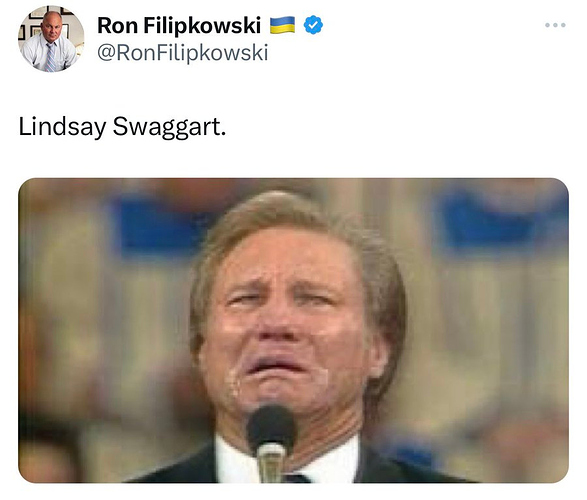Post by LFC on Mar 23, 2023 21:39:07 GMT
Moralizing and stealing go together so easily with these people.
Joseph Harding, the now-former Florida Republican lawmaker who authored the state’s infamous “Don’t Say Gay” bill, has pleaded guilty to federal felony charges relating to COVID-relief funds.
Harding entered his plea deal in a federal courthouse on Tuesday. In December, he was charged with two counts of wire fraud, two counts of money laundering, and two counts of making false statements. Harding initially pleaded not guilty to the charges, but now pleads guilty to one count of each charge, cutting his potential punishment in half.
“In pleading guilty, defendant acknowledges that were this case to go to trial, the government would present evidence to support the charges beyond a reasonable doubt,” the plea agreement reads.
Harding entered his plea deal in a federal courthouse on Tuesday. In December, he was charged with two counts of wire fraud, two counts of money laundering, and two counts of making false statements. Harding initially pleaded not guilty to the charges, but now pleads guilty to one count of each charge, cutting his potential punishment in half.
“In pleading guilty, defendant acknowledges that were this case to go to trial, the government would present evidence to support the charges beyond a reasonable doubt,” the plea agreement reads.
The former lawmaker allegedly plotted to defraud the Small Business Administration (SBA) for loans meant for small businesses impacted by the coronavirus pandemic and later filed a fraudulent application for an Economic Injury Disaster Loan (EIDL), according to court documents.
Between December 1, 2020, and March 1, 2021, the Ocala Republican allegedly “made and caused to be made false and fraudulent representations in SBA EIDL loan applications and in supporting loan documents submitted to the SBA in the names of dormant business entities,” the indictment read, “namely, The Vak Shack Inc. and Harding Farms LLC, in order to and in an attempt to falsely qualify for SBA EIDL loans.”
Prosecutors claim that Harding “falsely represented that these business entities were active businesses during 2019 and 2020 when in fact they were not.” His loan application stated that The Vak Shack earned over $400,000 and had four employees before the pandemic, but the company had been dormant from 2017 to 2020, with no gross revenue or staff. Similarly, he allegedly wrote that Harding Farms earned a similar amount with two employees, but it was also long dormant with no revenue and no staff.
He managed to obtain more than $150,000 in federal assistance, Coody’s office alleges, transferring more than $10,000 to his personal checking account, more than $10,000 for a credit card payment, and an additional $10,000-plus to a third-party business entity.
Harding now faces a maximum sentence of 20 years in prison and three years of supervised release for wire fraud, a maximum of 10 years in prison and three years of supervised release for money laundering, and a maximum of five years in prison and one year of supervised release for making a false statement, as well as a $250,000 fine and a $100 special monetary assessment for each charge.
Between December 1, 2020, and March 1, 2021, the Ocala Republican allegedly “made and caused to be made false and fraudulent representations in SBA EIDL loan applications and in supporting loan documents submitted to the SBA in the names of dormant business entities,” the indictment read, “namely, The Vak Shack Inc. and Harding Farms LLC, in order to and in an attempt to falsely qualify for SBA EIDL loans.”
Prosecutors claim that Harding “falsely represented that these business entities were active businesses during 2019 and 2020 when in fact they were not.” His loan application stated that The Vak Shack earned over $400,000 and had four employees before the pandemic, but the company had been dormant from 2017 to 2020, with no gross revenue or staff. Similarly, he allegedly wrote that Harding Farms earned a similar amount with two employees, but it was also long dormant with no revenue and no staff.
He managed to obtain more than $150,000 in federal assistance, Coody’s office alleges, transferring more than $10,000 to his personal checking account, more than $10,000 for a credit card payment, and an additional $10,000-plus to a third-party business entity.
Harding now faces a maximum sentence of 20 years in prison and three years of supervised release for wire fraud, a maximum of 10 years in prison and three years of supervised release for money laundering, and a maximum of five years in prison and one year of supervised release for making a false statement, as well as a $250,000 fine and a $100 special monetary assessment for each charge.


